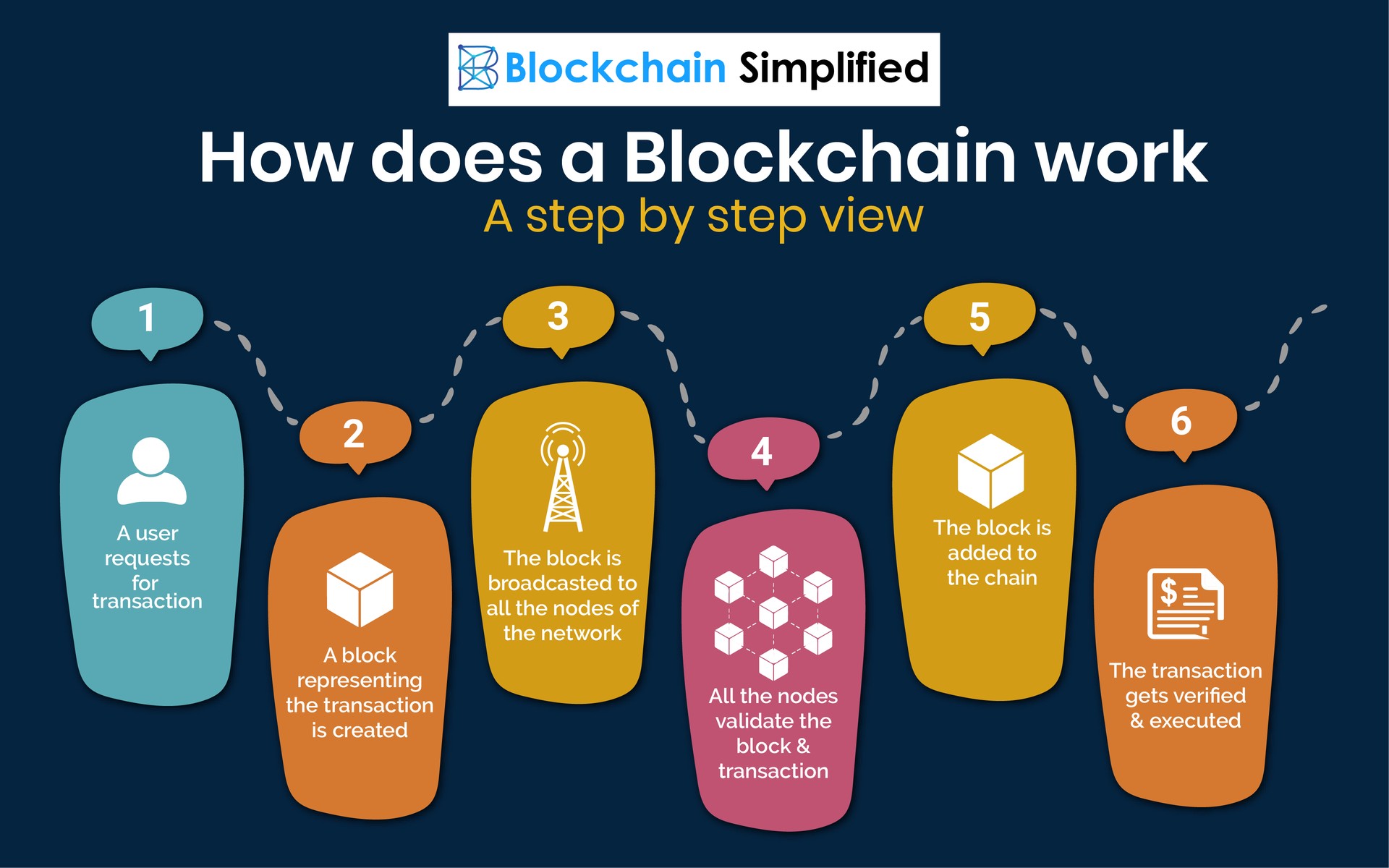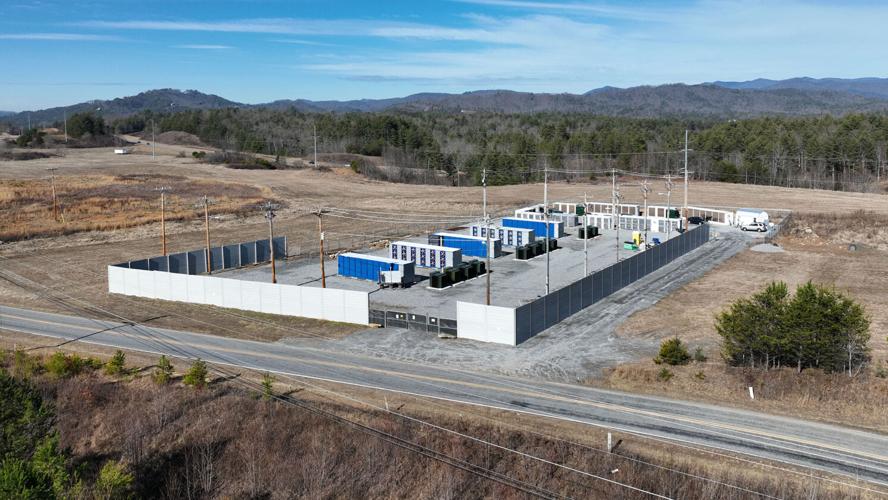Blockchain and Cryptocurrency in North Carolina
A blockchain is a digital, internet-based ledger for recording transactions. Each record or “block” adds to the cumulative list of transactions or “chain.” Because it is shared, decentralized, and cryptographically protected, a blockchain is broadly accessible, independently verifiable, and resistant to tampering. These features have enabled it to support digital cryptocurrencies such as Bitcoin and Ether that don’t require centralized intermediaries like banks. Some cryptocurrencies require complex verification, and individuals or firms compete to provide this service using computers in return for digital coins (cryptocurrency “mining”).

The Challenge
Blockchain technology is still developing but can potentially deliver helpful solutions to common local government challenges, such as secure record keeping and convenient public access to public information. The N.C. Blockchain Initiative, launched by the state government, is at the forefront of exploring these possibilities. This initiative is dedicated to promoting “education, innovation, and economic development for Web3 technologies” in North Carolina which support a decentralized version of the internet incorporating blockchain and similar technologies. Given the uncertainty associated with the technology, due diligence is important when considering blockchain solutions. Greater government oversight of the industry may be in store in the years ahead. In addition, the state is beginning to experience cryptocurrency mining activity, so this will be a trend to watch as a potential land use to manage.
 Credit: blockchainsimplified.com
Credit: blockchainsimplified.com
Potential Responses
Short-Term
- Coordinate with NC Blockchain Initiative on a directory of NC universities and businesses with blockchain programs
- Explore potential government blockchain uses through organizations like the Government Blockchain Association and other local government forums
- Track NC community issues with crypto mining
- Track government blockchain pilot initiatives
Medium-Term
- Engage the Government Blockchain Association and similar organizations to evaluate potential government blockchain solutions
- Include blockchain apps in vendor demos
- Develop guidance and case studies on managing crypto mining
- Track the impact of cryptocurrency on local government finance
Long-Term
- Track the growth of blockchain and crypto mining as part of the AI business sector
- Track the impact of blockchain development on local government services
- Include blockchain in the annual technology showcase
- Partner with local governments, universities, and vendors to develop a blockchain education program
Key Stats
- The cryptocurrency market grew from $96 billion in July 2017to $2.84 trillion in November 2021, dropped to $795 billion in December 2022, and increased to $1.13 trillion in June 2023 (CoinMarketCap).
- Trade documentation alone can cost as much as 20% of the physical cost of transporting the more than $4 trillion worth of goods shipped globally each By reducing supply chain barriers, global trade could increase by nearly 15 percent (World Economic Forum).
- Bitcoin cryptocurrency mining uses more energy per year than the entire country of Belgium (Cambridge University Bitcoin Electricity Consumption Index, 2019).
 Crypto Mining Operation in Murphy, NC (Credit: Local 3 News)
Crypto Mining Operation in Murphy, NC (Credit: Local 3 News)
Example: Haywood County Crypto Mining Ordinance
In response to noise impacts experienced by residents from a cryptocurrency mining operation in Murphy, NC, Haywood County adopted special ordinance provisions to manage the land use in its jurisdiction in November 2023. Concerns with crypto mining operations include substantial energy and water use, the generation of significant electronics waste, and limited job creation. Still, the key issue for Haywood County was the potential noise. Residents in Murphy said the new crypto mine was like living having a “never ending airplane engine” nearby.[1] Planning officials noted, “Crypto mines are loud, and the mining capacity is increased at nighttime.”[2] As a result, Haywood County adopted updates to its High-Impact Ordinance, establishing substantial buffering and setback requirements for “Cryptocurrency Data Centers” and “Cryptocurrency Server Farms.” A 100-foot vegetated buffer, fencing and screening, and a 750-foot setback are required between these uses and neighboring properties, with the distance extending to 1,000 feet near land uses with sensitive populations such as schools, hospitals, and assisted living facilities. Several other mountain communities have also been taking action to address the issue. Jackson County has adopted ordinance provisions managing the use, and Buncombe County and Clay County have established temporary moratoria prohibiting the activity.
Click here to complete our survey about North Carolina drivers of change!
References
Bybit.com. What Are Smart Contracts In Blockchain & How Do They Work? 2022.
David Morley. ”Zoning for data centers and cryptocurrency mining,” Zoning Practice, American Planning Association, June 2022.
Government Blockchain Association. Blockchain Maturity Model (BMM) Requirements. April 30, 2022.
Government Blockchain Association. The Impact of Cryptocurrency Adoption on Government
April 2021.
Government Blockchain Association. Government Business Blockchain Platform. 2022.
GovPilot. “Government blockchain: how local government can use crypto in 2023.” 2023.
IBM. IBM Blockchain 101: Quick-start guide for developers. 2023.
Justin Hollander. “Blockchain for planners.” PAS QuickNotes No. 99, American Planning Association. 2022.
Luisa Godinez-Puig, Thomas Brosy, and Gabriella Garriga. Around the BlockThe Present and Future of Blockchain and Crypto in US States and Cities. Urban Institute. 2023.
North Carolina Blockchain Initiative. Project Website.
Patrick Sisson. “The new block club.” Planning Magazine, (Summer 2022), American Planning Association. 2022.
Wendy Henry, Bruce Chew, Andrea Lora, and Hogene Chae. Developing winning blockchain applications in the public sector: Blockchain basics for government. Deloitte Center for Government Insights. 2018.
[1] Kimberly King. “’It’s been a disaster’ Residents warn neighboring areas of crypto mine impacts.” ABC News 13. 4/12/23.
[2] Vicki Hyatt. “County takes a stab at regulating deafening noise from crypto mines,” The Mountaineer, 10/25/23.

